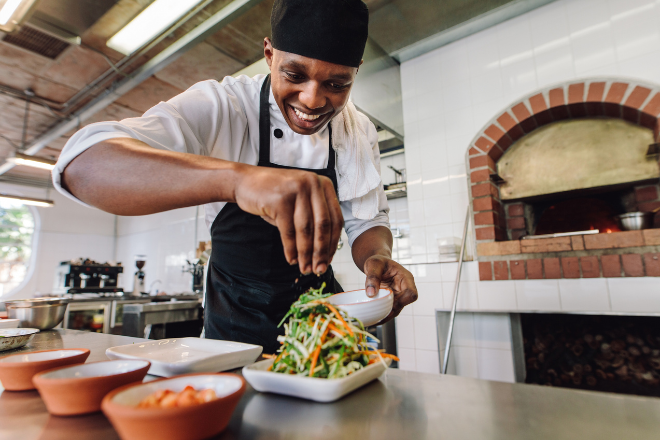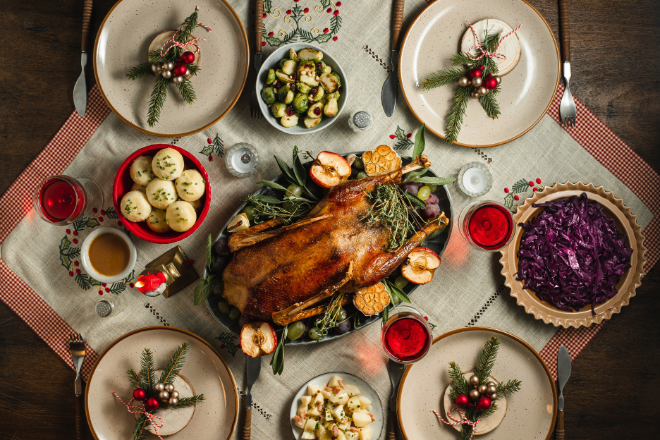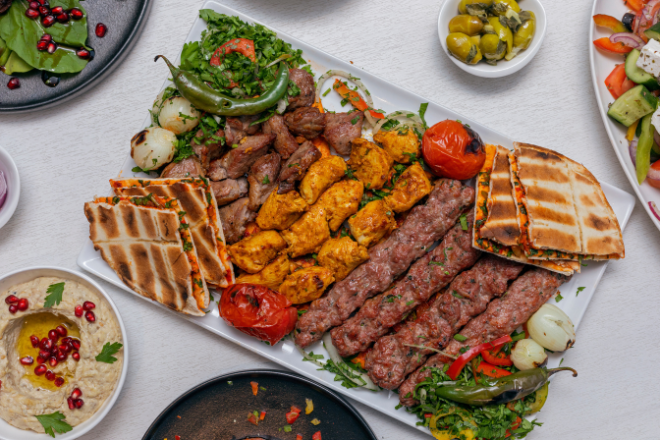Food has always been a universal language—a way to connect cultures, share stories, and preserve traditions. Among the world’s many food cultures, West African cuisine stands out for its rich flavors, bold spices, and hearty meals that bring families and communities together. Whether you’re savoring a stew simmered in palm oil or enjoying a plate of perfectly spiced grilled fish, West African food offers an unforgettable journey for the senses.
Across the globe, more diners are discovering the vibrant offerings of restaurants cuisine West African. From Nigeria and Ghana to Senegal and Sierra Leone, these dishes not only highlight local traditions but also appeal to international palates. And with catering services like Halal Caters, enjoying authentic and inclusive halal cuisine in West African traditions is now easier than ever.
The Roots of West African Cuisine
West Africa’s food culture is shaped by centuries of history, trade, and migration. With influences from indigenous cooking, Arab traders, European colonizers, and neighboring African regions, the cuisine is a melting pot of flavors and techniques.
-
Staple Ingredients: Yams, cassava, millet, plantains, and rice are common bases for meals.
-
Bold Spices: Scotch bonnet peppers, ginger, garlic, and thyme dominate seasoning profiles.
-
Cooking Methods: Stews, soups, and grilling are central techniques, often prepared in clay pots or over open flames.
-
Cultural Symbolism: Meals are often shared from communal bowls, emphasizing unity and hospitality.
This combination of hearty staples and vibrant spices makes West African cuisine one of the most flavorful culinary traditions in the world.
Signature Dishes in West African Restaurants
If you’re visiting a West African restaurant, here are some must-try dishes that showcase the diversity and depth of the region’s food:
1. Jollof Rice
Perhaps the most famous dish, Jollof Rice, is a one-pot meal of rice cooked in tomatoes, onions, peppers, and spices. Each country has its own variation, sparking friendly rivalries (especially between Nigeria and Ghana).
2. Egusi Soup
Made with ground melon seeds, leafy vegetables, and often meat or fish, this thick soup is a staple in Nigerian dining. It’s usually served with pounded yam or fufu.
3. Thieboudienne
Senegal’s national dish features fish stuffed with herbs, served with rice, vegetables, and a rich tomato-based sauce.
4. Suya
A popular street food, suya is skewered and grilled meat coated in a spicy peanut-based rub.
5. Fufu and Light Soup
Fufu, made from cassava, yams, or plantains, is paired with a variety of soups like light soup, palm nut soup, or groundnut soup.
6. Halal Cuisine in West African Traditions
Many communities across West Africa are Muslim, which has shaped food preparation practices. Halal cuisine in West African dining ensures that meat is sourced and prepared according to Islamic guidelines, making it inclusive for Muslim diners worldwide.
The Dining Experience at West African Restaurants
What makes restaurants cuisine West African so unique isn’t just the food—it’s the experience. Meals are often served family-style, with generous portions meant to be shared. The atmosphere is typically warm, communal, and vibrant, with music and décor reflecting cultural pride.
In many West African cultures, hospitality is a cornerstone, and this spirit carries into the restaurant experience. Guests are treated not just as customers but as family, invited to join in a celebration of food and tradition.
Why West African Cuisine Appeals Globally
The global rise of West African cuisine can be attributed to several factors:
-
Bold, Distinctive Flavors
The use of rich spices and fresh ingredients makes the food both comforting and exciting for adventurous eaters. -
Health Appeal
Many dishes rely on natural, plant-based ingredients like beans, yams, and leafy greens, appealing to health-conscious consumers. -
Cultural Curiosity
As people seek more authentic dining experiences, West African food offers a window into a vibrant and storied culture. -
Halal Options
With the growing demand for halal dining worldwide, halal cuisine in West African restaurants has made this food culture more accessible to diverse communities.
Halal Caters: Bringing West African Cuisine to Your Table
While dining out at restaurants is one way to enjoy these flavors, catering services provide the opportunity to bring West African dishes into homes, offices, and event venues. Halal Caters, a leading online catering service, specializes in authentic global cuisines, including West African.
Why Choose Halal Caters for West African Food?
-
Authenticity: Traditional recipes prepared by experienced chefs ensure an authentic taste experience.
-
Halal Certified: Every dish meets halal standards, making it inclusive for Muslim communities.
-
Convenience: From weddings and corporate events to family gatherings, Halal Caters delivers West African food straight to your event.
-
Variety: Menus feature classics like Jollof Rice, suya, and egusi soup alongside lesser-known gems.
-
Customization: Services can be tailored to fit dietary needs, event size, and preferences.
With Halal Caters, you can enjoy the richness of West African cuisine without leaving your doorstep.
The Importance of Halal Cuisine in West African Food
Given the significant Muslim populations in countries like Senegal, Nigeria, and Mali, halal dietary practices are deeply ingrained in West African food culture. Meat and poultry are prepared according to Islamic guidelines, ensuring respect for both tradition and faith.
By offering halal cuisine in West African menus, restaurants, and catering services like Halal Caters not only preserve authenticity but also expand access to a wider audience. This inclusivity has played a major role in the global popularity of the cuisine.
West African Cuisine Beyond the Continent
The global diaspora of West African communities has brought their food to new corners of the world. Cities like London, New York, Toronto, and Chicago are home to thriving West African restaurants, often run by immigrant families who bring traditional recipes passed down for generations.
In Chicago, for example, the growing demand for authentic African flavors has led to an increase in both restaurants and catering services offering Jollof Rice, suya, and other staples. With services like Halal Caters, locals now have even easier access to these authentic dishes.
Marketing West African Cuisine
For restaurants and catering services, promoting West African food requires emphasizing its unique appeal. Effective strategies include:
-
Highlighting Authenticity – Share cultural stories behind dishes.
-
Showcasing Halal Options – Stress the availability of halal cuisine in West African menus.
-
Social Media Marketing – Use Instagram, TikTok, and YouTube to showcase colorful dishes like Jollof Rice.
-
Food Festivals – Participate in cultural food festivals to reach broader audiences.
-
Influencer Collaborations – Partner with food bloggers to highlight the cuisine’s rich flavors.
Trends Shaping the Future of West African Cuisine
-
Fusion Dishes – Combining West African flavors with other cuisines (like Jollof burritos or suya tacos).
-
Sustainable Ingredients – Focus on organic yams, cassava, and eco-friendly production.
-
Health-Conscious Adaptations – Lighter versions of traditional dishes to appeal to health-driven audiences.
-
E-Commerce Food Delivery – Growth of online ordering platforms makes West African food more accessible.
-
Halal-Certified Growth – More restaurants worldwide are ensuring halal certification for inclusivity.
Final Thoughts
West African cuisine is more than just food—it’s culture, heritage, and hospitality woven together. From the smoky flavors of suya to the comforting richness of egusi soup and the celebratory joy of Jollof Rice, every dish tells a story.
For those eager to experience these flavors, exploring restaurants ‘ West African is a journey worth taking. And thanks to services like Halal Caters, enjoying authentic halal cuisine in West African tradition is now possible anywhere—whether at home, at work, or at large community events.



